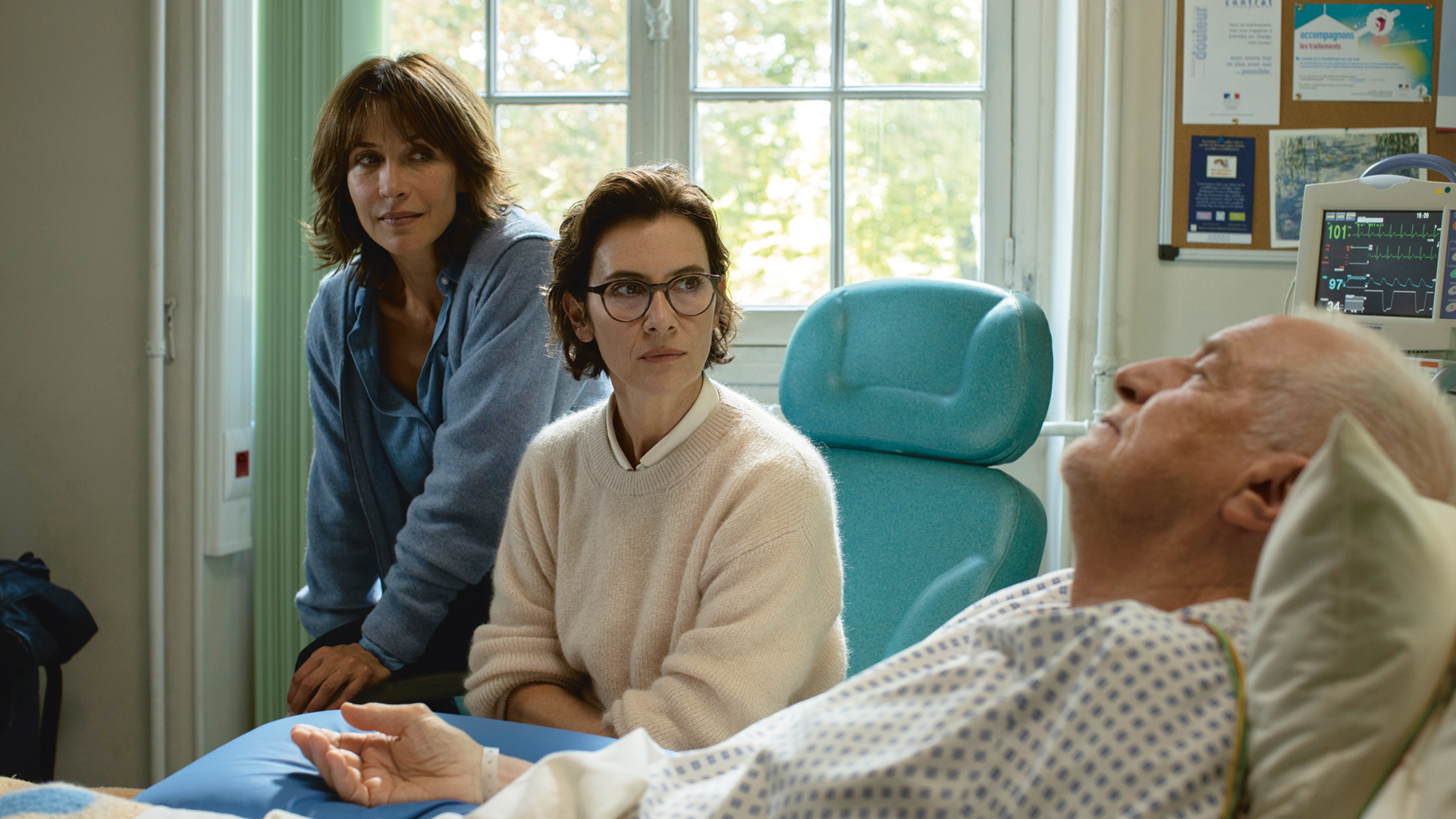This week sees the release of Pixar blockbuster Lightyear, a strange quasi-biopic of the supposed real-life space captain who inspired Toy Story’s lantern-jawed Buzz Lightyear action figure. But Buzz is not the only person declaring it their mission to go to infinity and beyond. The new French drama Everything Went Fine begins with octogenarian art collector André Bernheim (André Dussollier) undergoing an MRI after a stroke.
Though his right side is palsied, drooping his eye and loosening his lip, there is still the palpable sense of a formidable grand patron used to having things his own way. Even propped up in a hospital bed, André is self-regarding, theatrical and more than a little scathing.
His grown-up daughters Emmanuèle (Sophie Marceau) and Pascale (Géraldine Pailhas) are relieved that he is alive, but are obviously concerned about these new circumstances. Emmanuèle, a writer, puts a brave face on things – “My father’s strong, he always recovers,” she declares – but after a period of recuperation, having moved to a slightly fancier clinic, he has a request for her. André wants Emmanuèle to help him end it all.
This request does not come entirely out of the blue – the family has been warned that there is a high risk of relapse – but it still seems like a shock. For his part, André seems to be genuinely adamant even if he clearly gets some pleasure from whipping up a whirlwind of drama. But there is the very real fear that another neurological event could rob him of even more of himself. At least this way he could make a conscious decision about his ultimate fate.
What follows is an unusual mix of emotionally charged life-or-death family arguments interspersed with methodical scenes of the slightly frazzled Emmanuèle researching what is still considered a taboo topic. Owing to end-of-life practices in France, fulfilling her father’s dying wish will require some careful legal footwork and a late-night dash to Switzerland. If the gendarmes get a whiff of their plans, Emmanuèle – and Pascale, who has been drafted in to help – could face prosecution.
Adding to the sense of volatility is their father’s fractious relationship with their ailing artist mother Claude (Charlotte Rampling) and the unpredictable actions of the bearish Gérard (Grégory Gadebois), a former close confidant clearly stricken by André’s condition.










